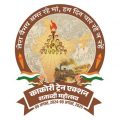History
Hapur city was established by Raja Hari Singh with the name Haripura in 983 AD. After some time, the name of Haripura changed to Hapur. This city is famous all over India. The people here participated enthusiastically in every struggle and movement. Here people of every class have been active in the general field.
Participated with full enthusiasm in the first war of independence of 1857 in which many people were martyred. In this fight, on 14th September, Maud Jabardar Khan and his brother Ch Ulfat Khan, residents of Bhanda Patti, were martyred by hanging from a Peepal tree outside Ramlila Maidan. Both of these Tyagis were Muslims and among their descendants Hindus, Virendra Tyagi (Daroga ji) and the descendants of the Muslim family are still alive. They are living in Bhanda Patti and are active in social work imbued with the spirit of patriotism. Chief among them are Mr. Fasih Choudhary (Gunman) and Dr. Margu Tyagi, great grandson of Ch. Hindus and Muslims unitedly participated in the independence movement of 1942. On the call of Gandhiji, Holi of foreign goods was burnt in Gandhiganj. Due to which, on 11th August, 4 agitators Shri Mange Lal, Shri Ramswaroop, Shri Girdharlal and Aganlal were martyred by the bullets of Agranjo in Town Hall Park. Even today, the marks of those bullets are present on the Atarpura police post of the city which will remind us of the blood of the martyrs. Many people were injured in this movement and those who were put in jail, mainly freedom fighters Amolak Chand Mittal, Babu Sarju Prasad and Shri Kailash Chand Mittal are present among us to tell the story of their bravery. Kailash Chand Mittal Sahab remained there for twenty years. Was the President of “Freedom Fighters Council”. Along with him, Khalifa Manzoor Hasan was a freedom fighter and many great personalities have sacrificed their lives in Hapur for the freedom of the country. One of whose names is famous all over the world. Maulana Abdul Haq is known as “Baba Urdu”. Even in his souvenir in America, Hapur wale is written in front of his name. In this series, Seth Babu Lakshmi Narayan, Shanti Swaroop Agarwal, Chaudhary Raghuveer Narayan Tyagi, Haji Rashid, Babu Madhusudan Dayal, Tarachand Modi, Kedar Nath Kaliwale, Captain Zafar Alam, former Chairman Municipality, Mukut Lala Editor, Amba Prasad Garg, Lala Devi. Sahay Tablawale, Ch. Wahidullah Kha, Mahashay Bakhtawar Lal, Munna Lal Jatav, Charag Dehelvi, Lala Gangasharan Aloo Wale and his son Mahesh Chand Aloo Wale are all late personalities who contributed to the political and social sphere of Hapur. Hakim Hashim Baig and Dr. Shabbir, Late. Due to the tireless efforts of Kailash Azad and Fasih Chaudhary, Martyr Fair is organized every year at Ramlila Maidan in the memory of martyrs.
One such personality was also born in Hapur who got the license of India’s first gun shop which was issued in 1835. That lucky person, late Ch. Fahimuddin Saheb was, even today this firm is working in Lucknow in the name of Ilahi Baksh & Company. Hapur resident Ch. Fahimuddin Saheb along with his younger brother Ch. Sharfuddin Saheb was also taken to Lucknow, where after completing his education, he started the business of the first gun shop in Hapur city of Ghaziabad district after getting the work of making guns and cartridges from the Government of India. Today there are five gun shops in Hapur.
Basically, potatoes are cultivated in the city of Hapur and potatoes worth crores of rupees are produced every year. Apart from this, the city’s Kaserath market is where the utensils produced are supplied all over the country. The steel utensils made here are famous in India.
Today, wholesale trade of timber is also going on on a large scale in Hapur. In the city of Hapur, India’s largest grain storage facility named “Silo” is built with the cooperation of America. The grain purchased in the entire country is stored in the silo of Hapur only. Due to which Hapur has an important place in the strategic map of India. Apart from the grain stores, cold storages were established for storing potatoes, of which only one cold store has a capacity of five lakh bags. A market for jaggery and grains was established due to which Hapur became known throughout the country. A leather market is also set up here where traders from far away places like Calcutta and Mumbai come every week to buy leather.
